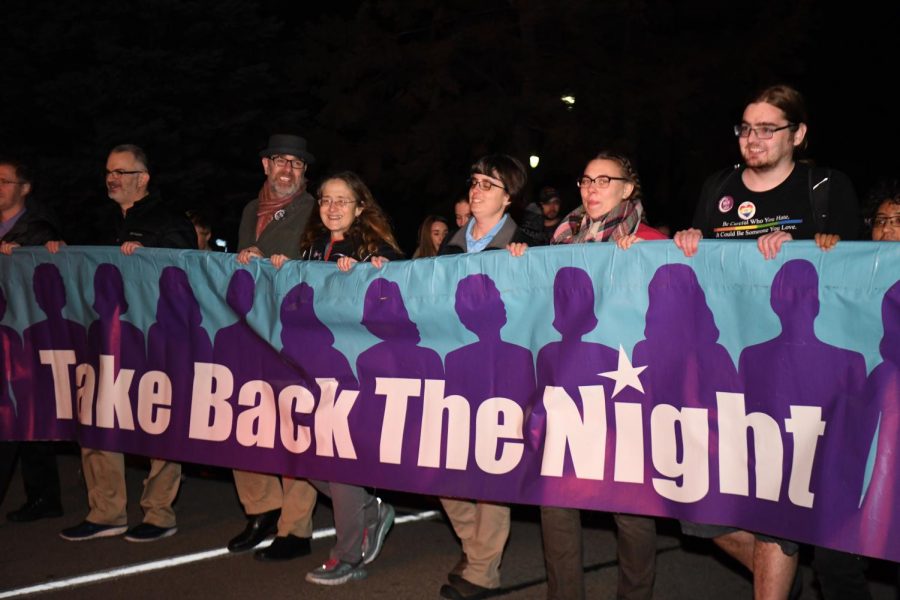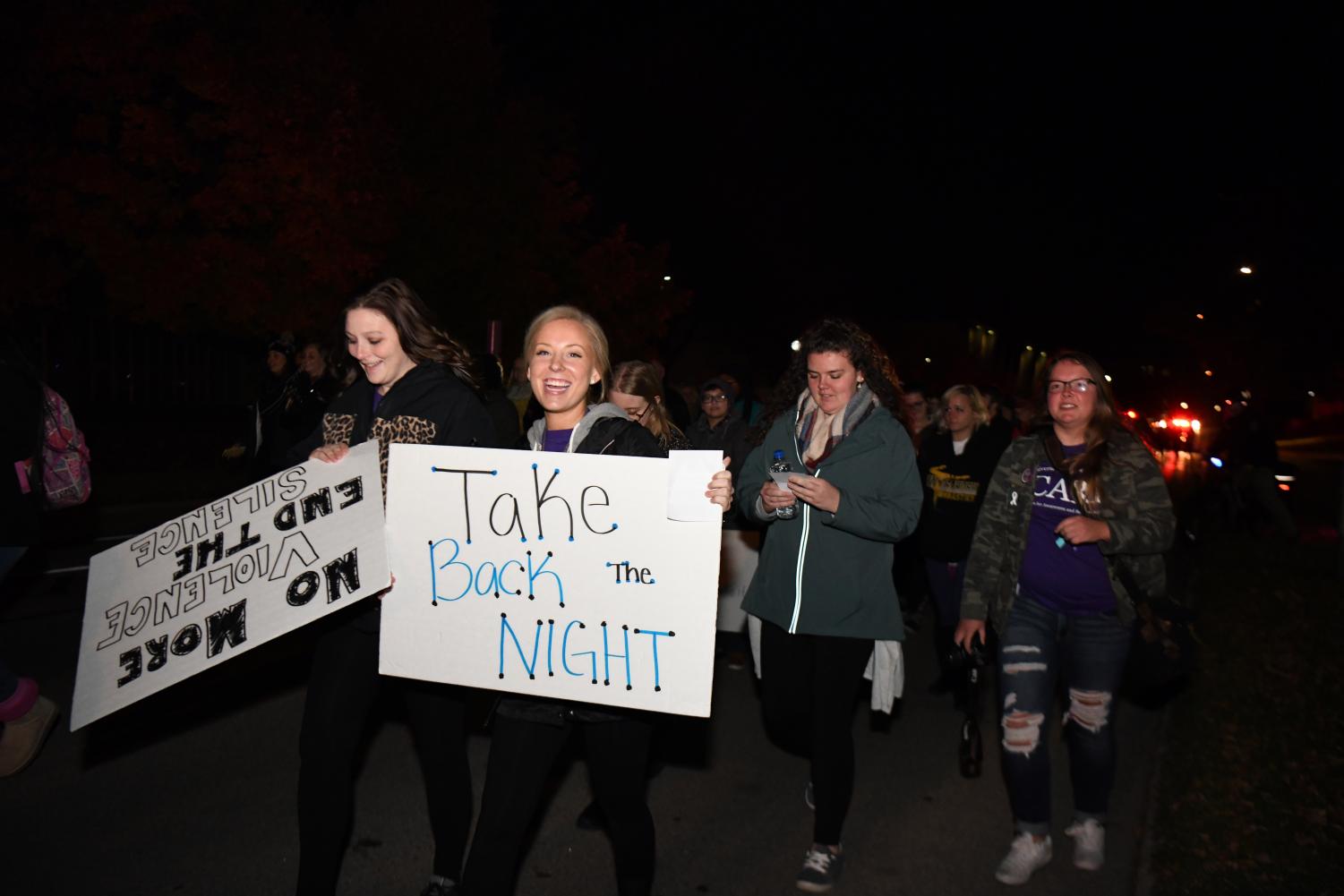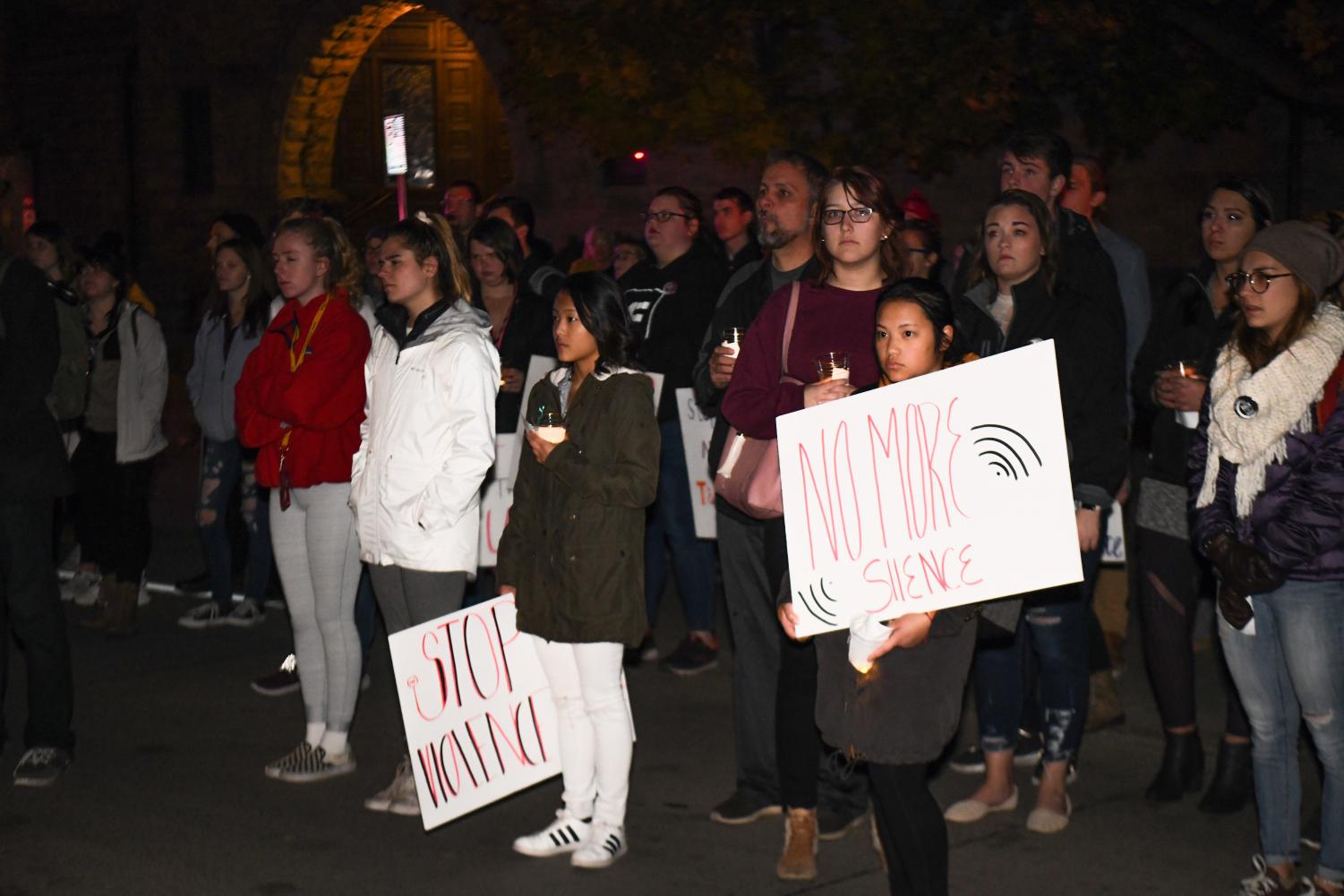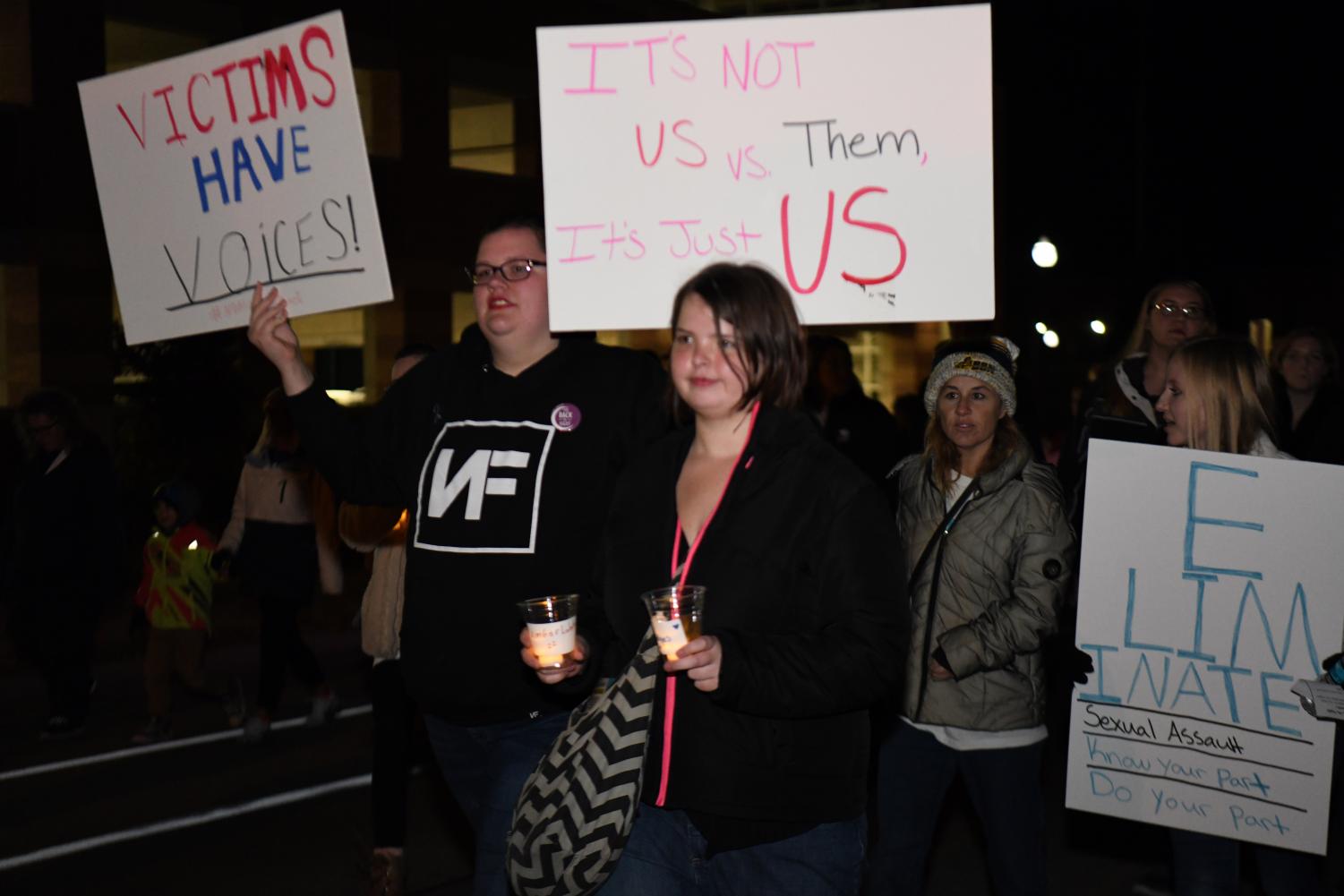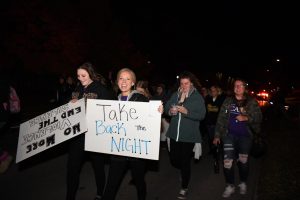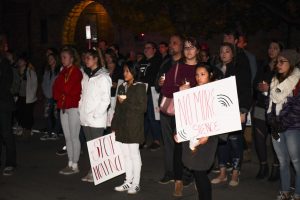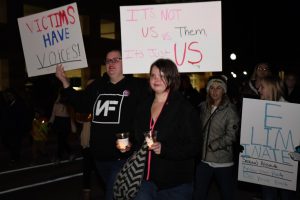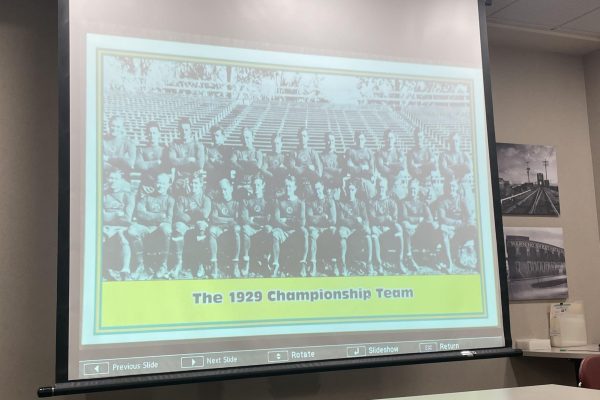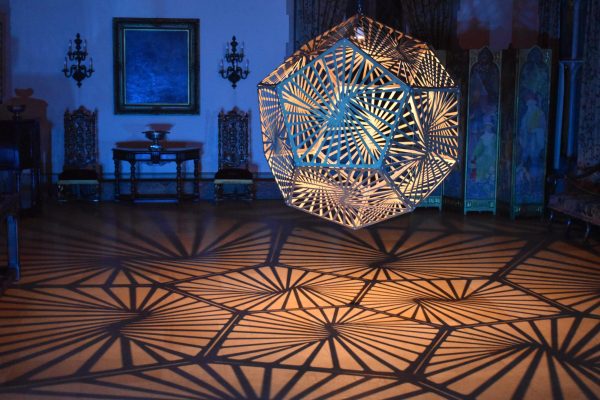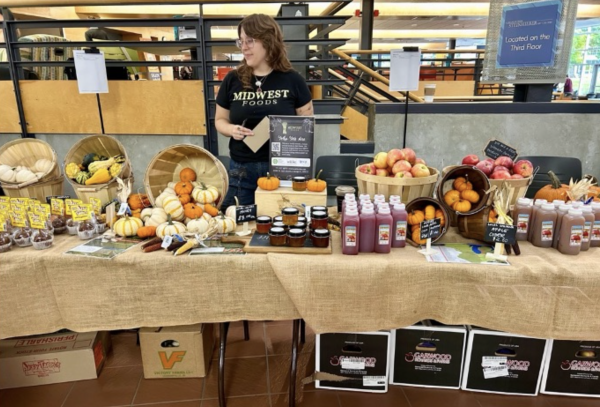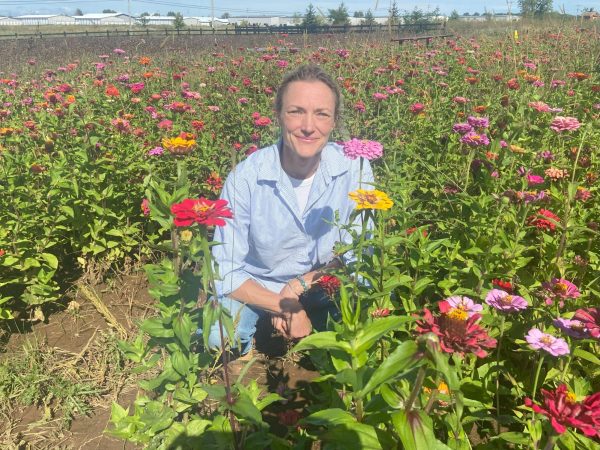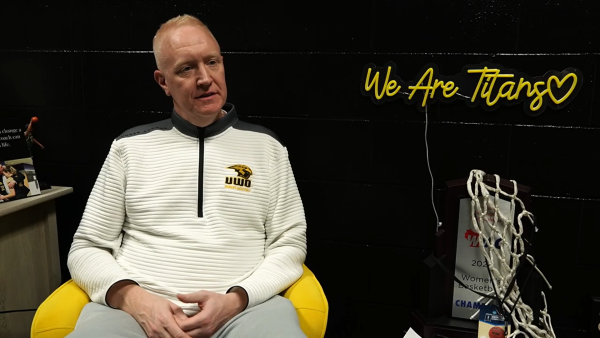Take Back the Night celebrates 28 years in Oshkosh
Participants start their march down Algoma Blvd toward the Christine Ann Center.
The 28th annual Take Back the Night was held in Reeve Union Ballroom Wednesday night to raise awareness on sexual assault, domestic violence and unhealthy relationships in our community.
Nationwide TBTN events strive to bring awareness to the problems of sexual violence while spotting allies and supporting those who have been victims of sexual assault, according to TBTN website.
Victims who lost their lives last year in sexual assault and domestic violence cases were honored with a candle-lit march to the Christine Ann Domestic Abuse Center. Purple silhouettes representing those lost had their names read off by marchers in a moment of respect.
A Native American jingle dance was introduced this year. The dance was done in traditional jingle dance regalia and is symbolic of healing and resilience, according to Marianne Radley, advocacy program director and volunteer coordinator at Reach Counseling.
Local artist Michael Wartgow concluded the event over hot chocolate and coffee in the Gail F. Steinhilber Art Gallery, located on the third floor of Reeve Union. Wartgow’s exhibit depicted survivors and their stories and the artwork was given to the survivors whose stories were told.
Other activities such as temporary tattoos, photo booths, sign decorations and voter registration were included.
Alicia Gehrig, community outreach coordinator at Christine Ann Domestic Abuse Services, said that TBTN is about people making themselves heard.
“The march is, in a way, taking back the streets,” Gehrig said. “We’re going to stand up to violence. We’re allies to survivors who need us.”
Gehrig said that TBTN comes just two weeks after what is known as the “red zone” period of sexual assaults on campus.
“Individuals ages 18-24 are the biggest population of where domestic violence occurs,” Gehrig said. “The first six weeks on campus they call the red zone, and that’s when the most sexual assaults are happening, that first part of the semester.”
Radley said that events like TBTN are a response to what goes on in the community.
“Sexual assault and domestic violence happens everywhere,” Radley said. “This is just a way to focus locally on what the issues are in Oshkosh and bring together the partners who respond to it and try to work to end and treat it.”
Radley said that survivors and those close to survivors may not know their options; TBTN and many other agencies in our community are here to help.
“It’s about making sure people in the community know what resources are available for survivors,” Radley said. “I think a lot of times folks hang on to these issues and either don’t know where to go, don’t think there is anyone available to help or feel like there is not support out there.”


